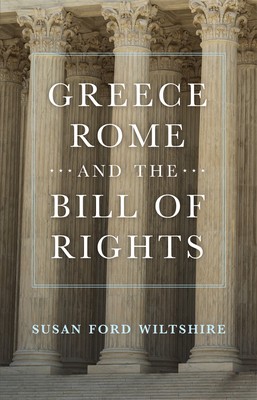
- We will send in 10–14 business days.
- Author: Susan Ford Wiltshire
- Publisher: University of Oklahoma Press
- ISBN-10: 0806124644
- ISBN-13: 9780806124643
- Format: 14.8 x 22.4 x 2.4 cm, kieti viršeliai
- Language: English
- SAVE -10% with code: EXTRA
Reviews
Description
Susan Ford Wiltshire traces the evolution of the doctrine of individual rights from antiquity through the eighteenth century. The common thread through that long story is the theory of natural law. Growing out of Greek political thought, especially that of Aristotle, natural law became a major tenet of Stoic philosophy during the Hellenistic age and later became attached to Roman legal doctrine. It underwent several transformations during the Middle Ages on the Continent and in England, especially in the thought of John Locke, before it came to justify a theory of natural right, claimed by Jefferson in the Declaration of Independence as the basis of the unalienable rights of Americans.
EXTRA 10 % discount with code: EXTRA
The promotion ends in 22d.15:37:03
The discount code is valid when purchasing from 10 €. Discounts do not stack.
- Author: Susan Ford Wiltshire
- Publisher: University of Oklahoma Press
- ISBN-10: 0806124644
- ISBN-13: 9780806124643
- Format: 14.8 x 22.4 x 2.4 cm, kieti viršeliai
- Language: English English
Susan Ford Wiltshire traces the evolution of the doctrine of individual rights from antiquity through the eighteenth century. The common thread through that long story is the theory of natural law. Growing out of Greek political thought, especially that of Aristotle, natural law became a major tenet of Stoic philosophy during the Hellenistic age and later became attached to Roman legal doctrine. It underwent several transformations during the Middle Ages on the Continent and in England, especially in the thought of John Locke, before it came to justify a theory of natural right, claimed by Jefferson in the Declaration of Independence as the basis of the unalienable rights of Americans.


Reviews